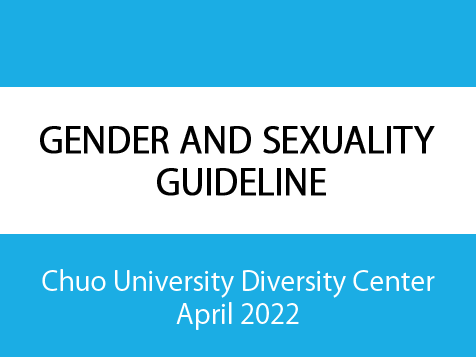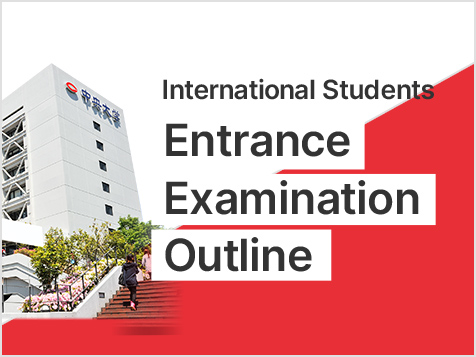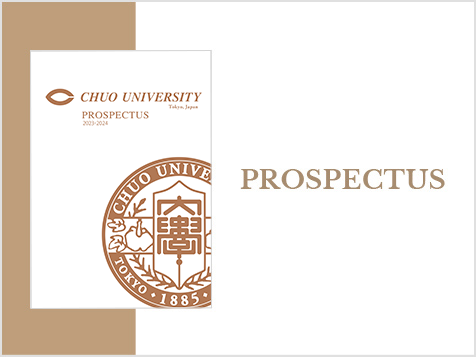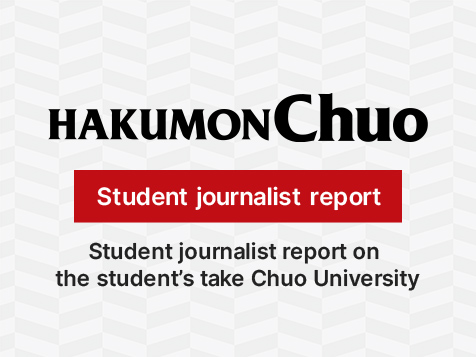Academics
Graduate School of Letters
The program consists of 13 courses: Japanese Literature, English Studies, German Studies, French Studies, Chinese Studies, Japanese History, Asian and African History, European and American History, Philosophy, Sociology, Socio-Informatics, Education, and Psychology. Students can take a wide variety of courses beyond the boundaries of their own major in addition to specialized courses in their own major. This enables students to acquire an advanced and deep education from a broad perspective through a combination of courses in their own specialized fields and courses across majors. In addition, as a substantial research support system for degree acquisition, each major has its own "Joint Research Office" with a large collection of related materials, journals, books, and other specialized periodicals, as well as a variety of journals for each major, research presentation meetings, and other opportunities to present research and publish their research findings. The Graduate School of Letters fosters human resources who can contribute to the globalized and highly information-oriented modern society, from local communities to international society, by focusing on the inner life, society, and history of human beings as research subjects. Our alumnae and alumni are active in their fields, using their highly specialized knowledge.
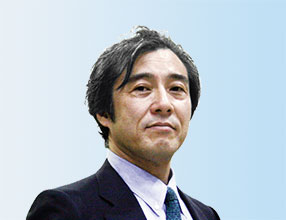
New Vision toward the spirit of an uncertain age
The Graduate School of Letters is a comprehensive graduate school consisting of 13 majors (Japanese Literature Course, English Studies Course, German Studies Course, French Studies Course, Chinese Studies Course, Japanese History Course, Asian and African History Course, European and American History Course, Philosophy Course, Sociology Course, Socio-Informatics Course, Education Course, and Psychology Course). With a variety of full-time faculty members who have in-depth knowledge of various academic fields, languages, cultures, regions, and society, we cover extensive research fields ranging from humanities to social sciences, some of which are close to natural science. There are traditional fields, such as Philosophy and Literature, and cutting-edge fields, such as Socio-Informatics, but the goal of all faculty members is to nurture researchers and highly skilled business professionals. To date, more than 200 students have earned doctoral degrees and many of these individuals are making notable achievements as researchers, as well as making significant contributions as educators to guide and nurture future generations of researchers. As highly skilled professionals, many other graduates are active in practical fields, including education, business, and civil service, with the practical skills they have developed.
It has been more than 20 years since 9/11 and 10 years since 3/11, and we live in a society where COVID-19 has become the norm. We are unable to readily tackle the global issues responsible for the climate crisis and we stand by helplessly viewing the catastrophic ravages of war in Ukraine and Gaza as we continue to face an “unfathomable VUCA* period.” At the core of the Graduate School of Letters is the cultivation of "culture," which is essential in the current age. This means cultivating imagination and creativity, in order to gain insights into the nature of problems and pave the way for a new perspective.
The Graduate School of Letters has cultivated fundamental and progressive knowledge as the vertical axis of each of its 13 majors, but also offers cross-disciplinary courses that transcend the boundaries of these majors allowing students to connect diverse knowledge organically. “Cross-border knowledge” gained through cross-disciplinary studies facilitates our acquisition of broad perspectives, and this enables us to reconfirm the meanings of pursuing knowledge as the vertical axis and provides clues toward deepening our learning and becoming spiritually rich individuals.**
Approach everything rationally, and become harsh. Pole along in the stream of emotions, and you will be swept away by the current. Give free rein to your desires, and you become uncomfortably confined. It is not a very agreeable place to live, this world of ours. . . .*** (translated by Alan Turney)
This is a rather famous passage from Soseki. It is undeniable that the recent period of uncertainty is accelerating people’s feelings that it is “not a very agreeable place to live.” However, it is vital to gain insights into the essence of feeling “not a very agreeable place to live,” and we believe it is the raison d’etre of the Graduate School of Letters to fulfill this task. We are determined to maintain our long-standing attitude of not being afraid of being “harsh,” “swept away by the current,” or “uncomfortably confined.” We welcome researchers who join us as fellow explorers to open up new visions of the spirit of an uncertain age.
Hidehiro NAKAO Dean, Graduate School of Letters
* VUCA stands for Volatility, Uncertainty, Complexity, and Ambiguity. It began as a military term and now represents the structural factors during a period of uncertainty.
** In addition to cross-disciplinary major courses offered in the Graduate School of Letters, students have access to courses offered in other Chuo graduate schools through the “open domain system.”
https://sites.google.com/a/g.chuo-u.ac.jp/newbunkeidaigakuin/c
*** “rationally, emotions, free rein to one’s desires” can be replaced with the term “Intelligence, Passion, Will.” According to a monthly magazine published by the Agency of Cultural Affairs, “Q&A related to words,” more than 60 percent of respondents answered the meaning of “sticking a pole in a flowing river” incorrectly as “going against a trend, to lose momentum of something”.
